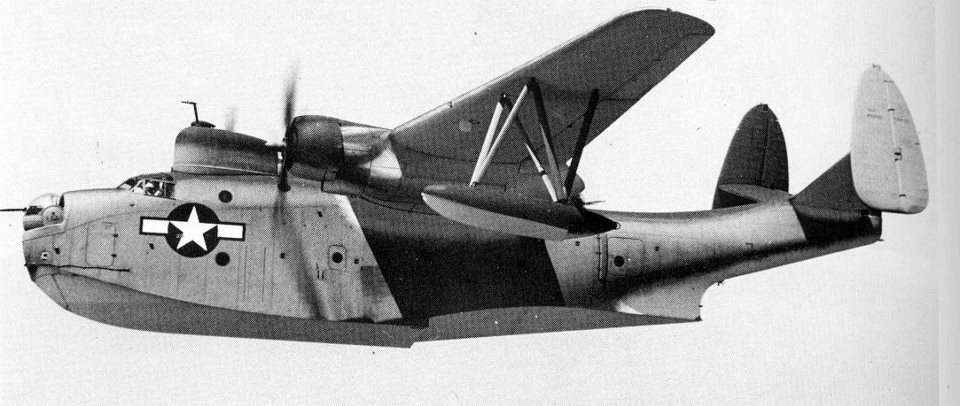

^^Above: Rare Video of a German WWII Auto-Gyro aboard a U-Boat
Article By: Jack Schweibold.
We have all been swept into flying by various circumstances. My defining moment was through my uncle, Richard “Dick” Schreder. At the impressionable age eight, my grandmother took me by train to Norfolk Naval Air Station. Uncle Dick was being presented the Distinguished Flying Cross, midway thru WWII, for the sinking of the German U-boat U-158 off Bermuda on 30 June 1942 while commanding a Martin PBM Mariner. At that point in my life I didn’t truly understand the exact circumstances surrounding his medal. Nonetheless, Uncle Dick was standing larger than life, in his dress uniform with some very important looking people lavishing praise upon him for his flying acumen.
Now, I already knew that my uncle was a pilot and adventurer extraordinaire. At age 9 Uncle Dick built his first airplane, a biplane hang glider that he built from plans found in a Popular Mechanics magazine. At 19 he built his first powered airplane, a single-seater powered by a Henderson Motorcycle engine. After receiving a BS in Mechanical Engineering from the University of Toledo in 1938, Schreder joined the United States Navy as a Naval Aviation Cadet.
However, knowing my long career in the rotorcraft industry, it wasn’t until he was eighty years old that Uncle Dick shared the unique story of what transpired that day he earned his DFC. He had been flying his PBM on coastal patrol duty in the early 1940’s. The entire U.S. Naval Air Command was dumbfounded as to why they were unable to spot any of the German submarine wolf-pack they knew was infiltrating and patrolling along the United States Atlantic seaboard.
Uncle Dick related how … While refueling in Bermuda one day and on the way out of Operations, we passed a Pan American crew walking in from one of their Clippers. I asked them if they ever spotted a U-boat. They said they saw them all the time between New York and England. “What! Our entire Navy has been looking for them for months and we’ve never seen one out here!”, Dick exclaimed. “Oh, you never will”, they replied. “You guys fly too low. You are down there at 500 feet, we are cruising at 10,000 foot altitudes. The German submarines are towing an auto-gyro at several hundred feet in the air and their spotter can see you before you see them. The auto-gyro/spotter is reeled aboard and submerged by the time you arrive.”
The Pan Am boys were right, patrol procedures were dictated to us by Naval Command who mandated 500 feet altitudes. For the next week, I forgot my orders and cruised my PBM at 5,000 feet. Sure enough, it wasn’t long before we spotted a U-boat at about eight miles distance. They were frantically reeling their spotter aboard. I pushed the throttles and dived to intercept. The U-boat crew knew they had been spotted and cut the poor auto-gyro pilot loose and abandoned him in the sub’s wake. The captain was still on the coning tower and we had eyeball to eyeball contact at 50 feet as they blew bow ballasts to submerge. We dropped our depth charges on that first pass. I immediately pulled the PBM up into a chandelle as we screamed overhead and we could see the captain securing the hatch for their dive. There were no explosions and figured we had somehow missed even though it had to be a direct hit. Needless to say, the crew was expressively unhappy at that moment.
Uncle Dick’s airmanship and marksmanship were such that he achieved a direct hit on the deck of the submarine with their depth charge. We were initially disappointed when the depth charge did not explode on impact, and one of the crew saw that it had merely lodged itself into the teak planking of the deck. However, we continued to circle the site after the U-boat submerged, and observed the charge detonate after the sub carried it down to its pre-set trigger depth. Except for debris, U-158 was not seen again. U.S. Naval Patrols were then dispatched to higher altitudes and the wolf-pack quickly thinned and moved away from the coast of the United States. Dick Screder served in the Navy until 1948, rising to the rank of Commander.
For those of you reading carefully and familiar with military protocols, you will have noted that Uncle Dick disobeyed an order from high command which created quite a conundrum: should the Navy court martial Uncle Dick or award him a medal? Uncle Dick was awarded the DFC while I gained a new respect for my aviation mentor uncle, a passion for aviation… and a sympathy for the early auto-gyro guys.

Awesome story…thanks fot sharing
That was a great story! Thank you. Anyone else who reads this post should also read the Wikipedia article about Dick Schreder. It gives further background on this distinguished aviator:
http://en.wikipedia.org/wiki/Richard_Schreder